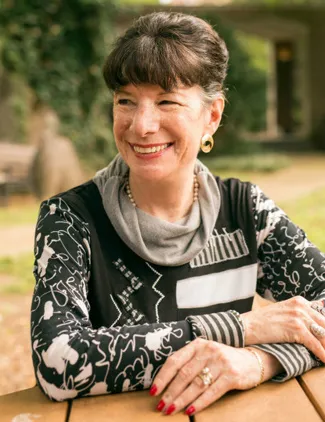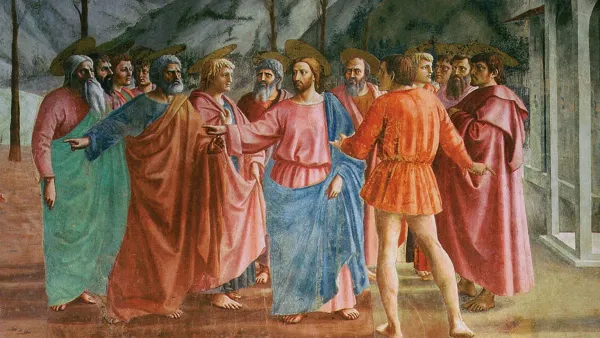On Thursday, March 21, Amy-Jill Levine will deliver the annual E.G. Weltin Lecture in Early Christianity. Levine is University Professor of New Testament and Jewish Studies, the Mary Jane Werthan Professor of Jewish Studies, and a professor of New Testament studies at Vanderbilt University. We sat down with Levine ahead of her talk to learn more about her work.

What initially drew you to researching the history of the Jewish Jesus?
Three reasons in particular draw me to study Jesus of Nazareth. First, to study Jesus is to recover parts of Jewish history that I never learned in the synagogue. Second, I’ve encountered numerous false, indeed toxic, presentations of Jesus’ Jewish context, so the study of Jesus the Jew allows me to correct negative teachings. Finally, while I do not worship Jesus as Lord, I find many of his teachings both inspirational and profound.
How have Christian and Jewish understandings of Jesus’ Jewishness changed over time?
Today, increasing numbers of Christians seek to recover the Jewish roots of their faith and to ensure that their readings of the Gospels do not promote anti-Jewish views. We see these concerns, for example, in numerous Roman Catholic documents, such as the Commission of the Holy See for Religious Relations with the Jews’ 1985 “Notes on the correct way to present Jews and Judaism in preaching and catechesis in the Roman Catholic Church.” (By the way, I’d be thrilled to be invited to work on updating this text.) Today, more and more Jews are interested in our shared history with Christians, given that Jesus, Paul, Mary and Martha, etc., were all Jews. We can see this interest, for example, in my co-edited (with Marc Z. Brettler) Jewish Annotated New Testament, now in its second edition (2017). Seventy Jewish scholars provide commentary on all the New Testament books and essays on such topics as the Pharisees, synagogues and the Temple, Jewish views of Jesus, Paul, and Mary, and the current state of Jewish-Christian relations.
What are some of things that have surprised you most in researching this topic?
The most depressing part of the study is how deep the anti-Jewish readings go. If I, as a Jew, do not need to construct negative images of Judaism to find meaning in Jesus’ teaching, surely Christians can as well. I am fascinated by what the Gospel accounts tell us about life in early first-century Judea and Galilee, including information on women: their access to funds and patronage roles, home-ownership, freedom of travel, and celebrations with women friends.
Personally, I continue to be surprised and delighted by new readings of the parables. Every time I think I’ve come to a full understanding, I discover something new.
What do you hope listeners will take away from your talk?
We shall engage in what might be called an act of historical imagination. We’re going to attempt to hear a few parables as if we were living in lower Galilee around the year 30. The point is not to erase 2,000 years of interpretation, it is to recover the initial provocation of these short stories.
Ideally, I’d like them to be as inspired by the parables as I am; to find in the parables not only ethical lessons but also humor and hope that can be shared by Jews, Christians, and anyone interested in good stories.

